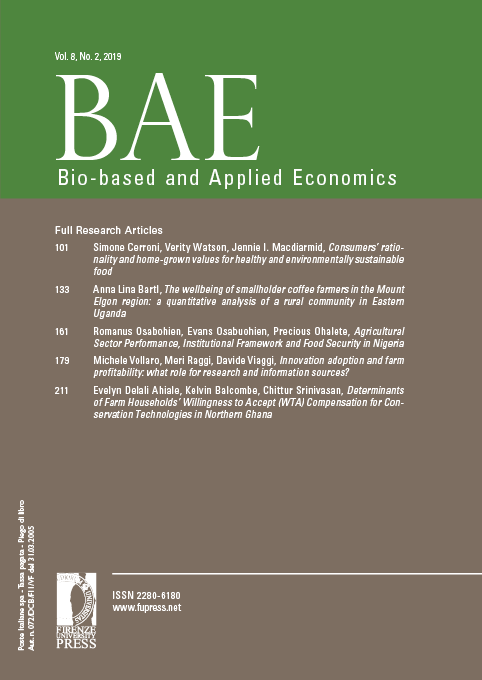Published 2020-05-20
Keywords
- Agriculture,
- Food Security,
- Governance,
- Institutions
How to Cite
Abstract
This study examines how the performance of the agricultural sector can be enhanced in the long-run through institutional framework thereby ensuring food security in Nigeria. It employs the ARDL (Autoregressive Distributed Lag) with data from the Central Bank of Nigeria (CBN) statistical bulletin, Food and Agriculture Organisation (FAO), World Development Indicators (WDI), and World Governance Indicators (WDI). Food security is used as the dependent variable proxied by the number of the people undernourished under the stability dimension; agricultural sector performance and institutional framework as the independent variables, while population is a control variable. Two agricultural variables (agriculture production and agriculture credit) are employed with six variables of institutional framework. The findings show that in the log-run, agriculture production and agriculture credit (agriculture variables) will increase food security by reducing the number of people undernourished by 2% and 18%, respectively. In terms of institutional framework; political stability and absence of violence and rule of law increase food security by reducing undernourishment by approximately 69% and 29%, respectively; control of corruption and voice and accountability tends to reduce food security by increasing the number of the people undernourished by 74%, 51% and 63% respectively. Therefore, the study concludes by recommending, among others, that the Nigerian institutional framework should be improved (especially the control of corruption) in addressing the challenges in the implementation of food security programmes and ensuring timely distribution of food resources.






